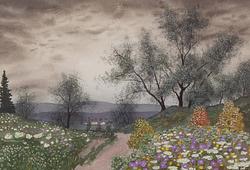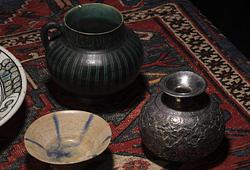A group of Chinese books and rubbings, 11 volumes, Republic period, 20th Century.
Comprising; 11 volumes about for example - Ming dynasty rubbings of the Stele of Boyi and Shuqi, republic period. A print of the rubbings of the model calligraphies from the 'Hall of the Three Rarities'. Rubbings of the Song dynasty CalligrpaherMi Fu's running script works. Rubbings of the Stele of Lanzhou City, written by Na Yancheng. Fourteen Heart Sutras in Regular Script, Two book with 'Poems Written in Cursive and Semi-Cursive Scripts by Xu Tianchi. Notes of the Hall of Longevity and Spring. Inscriptions on Paintings by Zhen Banqiao.
Sold as is.
Alkuperä - Provenienssi
From the Collection of Sven Lindqvist (1932-2019), a well renowned Swedish author whose 35 books range from travel and reportage to essays, aphorisms, autobiography, and documentary prose. 1960-62 he studied at Peking University and was 1961-62 cultural attaché at the Swedish Embassy. He formed a life-long attachment to Chinese Art and culture, especially calligraphy.
During his studies at Peking University Lindqvist was fascinated by a Tang dynasty painter famous for his murals: Wu Tao-tzu. The legend has it that he - after having just finished a wall-painting, he suddenly clapped his hands and a gate in the painting opened. Wu Tao-tzu entered into his art, the gate closing behind him, and he was never seen again. The Myth of Wu Tao-tzu, by Sven Lindqvist, (Bonniers 1967, in English, Granta 2012), is the story of what happened to the painter in the painting.































































